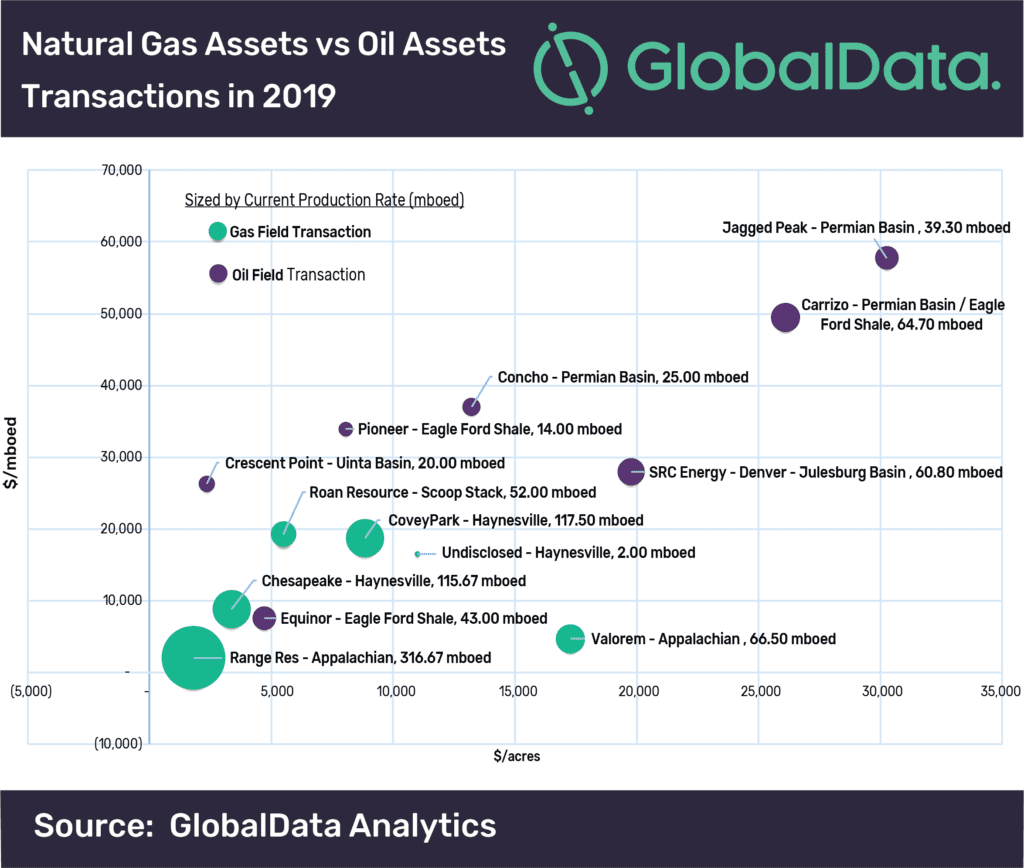Steven Ho, Oil and Gas Analyst at GlobalData, a leading data and analytics company, offers his view on what Cornstock’s Chesapeake’s Haynesville assets acquisition will mean for Comstock:
“Comstock’s potential acquisition of Chesapeake’s Haynesville assets will significantly increase its natural gas production from 1.15 billion cubic feet per day (bcfd) up to 2bcfd in 2020, while operational synergy could increase Comstock’s current position net present value (NPV) from US$4.1bn up to US$5.8bn.
“Looking at major transactions that took place in the US in 2019, it is quite clear that pure gas merger and acquisition (M&A) deals are currently valued at a markdown when compared to oil deals, mainly due to prolonged low natural gas prices. Comstock’s strategy is to acquire Chesapeake’s Haynesville assets during the downturn cycle and maximize cost efficiencies stemming from close proximities of newly acquired wells to the company’s existing acreage.
“Over the past few years, Comstock has focused on lowering operating costs. The company will continue to do so by leveraging over 500 miles of owned gathering infrastructure and by renegotiating new gathering contracts and long-term marketing arrangements to gain access to the Gulf Coast premium markets. If Comstock manages to integrate Chesapeake’s assets with reduced operating cost, the combined NPV of such a position can reach approximately US$5.8bn versus US$4.1bn of Comstock’s current position.

“There is a strong positive expectation for natural gas demand growth via new power, petrochemical and liquefied natural gas (LNG) plants but this does not necessarily guarantee a high natural gas price. There is a common consensus in the industry that the US LNG supply glut has started to form and will continue until the early 2020s, putting additional downward pressure on current LNG prices and ultimately impacting natural gas prices as well. This uncertainty will continue to force US natural gas operators into even higher cost efficiencies through larger scale operations which can in turn drive more merger and acquisition (M&A) activity in the coming years.”





